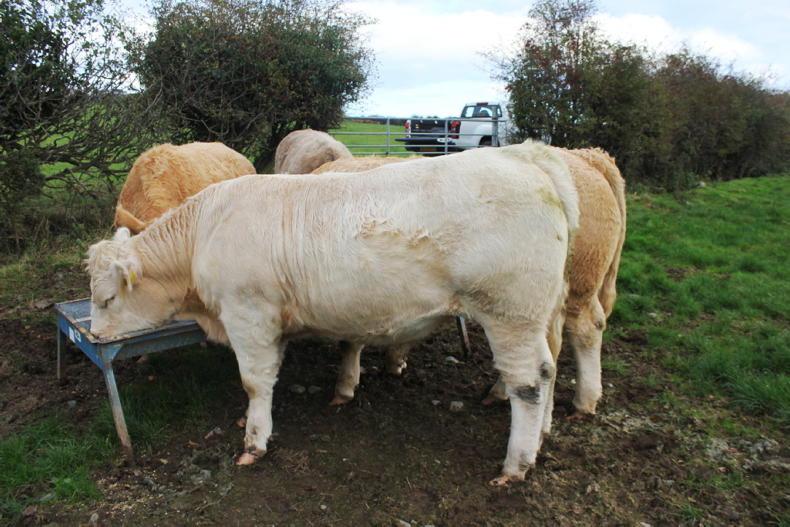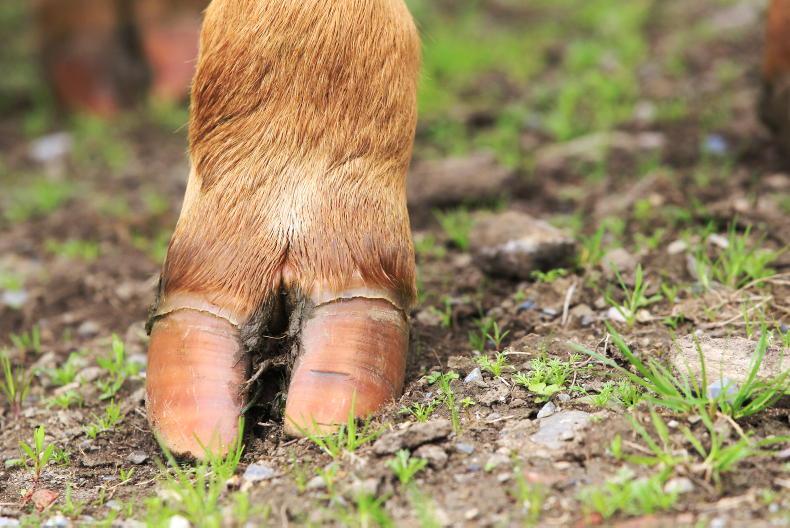The judge in a court case involving a Co Tyrone beef finishing business had to intervene on a number of occasions on Tuesday with the main defendant, Mr Alan McFarland from Ballagh Road, Clogher, increasingly exasperated as DAERA continue to pursue the case.
Mr McFarland strenuously denies nine charges, most of which relate to issues surrounding cattle identification, registration and movement, following an unannounced cattle identification inspection (CII) at his farm on 15 October 2019. In total, 14 cattle were seized and destroyed.
The defence has pointed out that the wrong legislation was quoted in a number of the charges, while mistakes were made in tag numbers and dates. Despite this, the case continues.
Cross-examined
In the fourth day of evidence at Dungannon Court, Mr McFarland was cross-examined by the prosecution.
At the CII on 15 October 2019 four cattle were found with missing tags. Mr McFarland explained that some cattle might have a second button tag, which can be hidden by hair, so it might not be immediately obvious that an animal is single-tagged.
He contended that up to 300,000 replacement tags are issued in NI every year, so it is common for an animal to lose a tag, and in the case of two of the five cattle, they were double tagged on 4 October 2019, so had lost both tags over a short timeframe. It was put to McFarland that this was “highly unfortunate”.
The CII also identified five cattle on the farm that were not in the herds owned by either Alan McFarland or his son Robert.
Two of the five animals were recorded as “dead” on APHIS.
“Obviously an error has occurred. We all make mistakes – that is why there is a system of fault reporting,” argued Alan McFarland.
He said that he contacted DAERA and was told by a veterinary official in Dungannon to follow up with a letter requesting a fault report be created for the five cattle.
He presented to the court a copy of a handwritten letter, dated 8 October 2019, and said that when inspectors arrived on 15 October 2019 he assumed they were investigating this correspondence.
Among the other charges is a failure to notify the movement of six cattle on to the holding. Mr McFarland told the court that these cattle were bought on 10 October, and the movement documents handed in on 16 October (the day after the CII), which was within the required seven-day notification period.
He argued the onus is then on DAERA to get the movement uploaded onto APHIS. Once that is done, he is able to confirm the move online.
“I have kept to the rules. I don’t understand why I am here. It makes no sense,” he told the court.
He also faces two charges relating to an untagged calf which Mr McFarland maintains was approaching 21 days old (within the legal timeframe to tag a calf).
He vehemently denied that he had admitted to inspectors during the CII that the calf was two months old.
He also denies a charge of obstructing DAERA officials, failing to present a herd register and failure to produce medicine records.
His son Robert faces one charge relating to three cattle that were exported out of NI on paper, but did not physically move.
Mr Robert McFarland told the court on Tuesday that 13 cattle had been booked for export, but the haulier had only been able to take 10.
The case against both men is due to resume again in June.
Read more
Beef finisher disputes DAERA evidence in court
Bring back metal cattle tags – UFU
The judge in a court case involving a Co Tyrone beef finishing business had to intervene on a number of occasions on Tuesday with the main defendant, Mr Alan McFarland from Ballagh Road, Clogher, increasingly exasperated as DAERA continue to pursue the case.
Mr McFarland strenuously denies nine charges, most of which relate to issues surrounding cattle identification, registration and movement, following an unannounced cattle identification inspection (CII) at his farm on 15 October 2019. In total, 14 cattle were seized and destroyed.
The defence has pointed out that the wrong legislation was quoted in a number of the charges, while mistakes were made in tag numbers and dates. Despite this, the case continues.
Cross-examined
In the fourth day of evidence at Dungannon Court, Mr McFarland was cross-examined by the prosecution.
At the CII on 15 October 2019 four cattle were found with missing tags. Mr McFarland explained that some cattle might have a second button tag, which can be hidden by hair, so it might not be immediately obvious that an animal is single-tagged.
He contended that up to 300,000 replacement tags are issued in NI every year, so it is common for an animal to lose a tag, and in the case of two of the five cattle, they were double tagged on 4 October 2019, so had lost both tags over a short timeframe. It was put to McFarland that this was “highly unfortunate”.
The CII also identified five cattle on the farm that were not in the herds owned by either Alan McFarland or his son Robert.
Two of the five animals were recorded as “dead” on APHIS.
“Obviously an error has occurred. We all make mistakes – that is why there is a system of fault reporting,” argued Alan McFarland.
He said that he contacted DAERA and was told by a veterinary official in Dungannon to follow up with a letter requesting a fault report be created for the five cattle.
He presented to the court a copy of a handwritten letter, dated 8 October 2019, and said that when inspectors arrived on 15 October 2019 he assumed they were investigating this correspondence.
Among the other charges is a failure to notify the movement of six cattle on to the holding. Mr McFarland told the court that these cattle were bought on 10 October, and the movement documents handed in on 16 October (the day after the CII), which was within the required seven-day notification period.
He argued the onus is then on DAERA to get the movement uploaded onto APHIS. Once that is done, he is able to confirm the move online.
“I have kept to the rules. I don’t understand why I am here. It makes no sense,” he told the court.
He also faces two charges relating to an untagged calf which Mr McFarland maintains was approaching 21 days old (within the legal timeframe to tag a calf).
He vehemently denied that he had admitted to inspectors during the CII that the calf was two months old.
He also denies a charge of obstructing DAERA officials, failing to present a herd register and failure to produce medicine records.
His son Robert faces one charge relating to three cattle that were exported out of NI on paper, but did not physically move.
Mr Robert McFarland told the court on Tuesday that 13 cattle had been booked for export, but the haulier had only been able to take 10.
The case against both men is due to resume again in June.
Read more
Beef finisher disputes DAERA evidence in court
Bring back metal cattle tags – UFU










SHARING OPTIONS